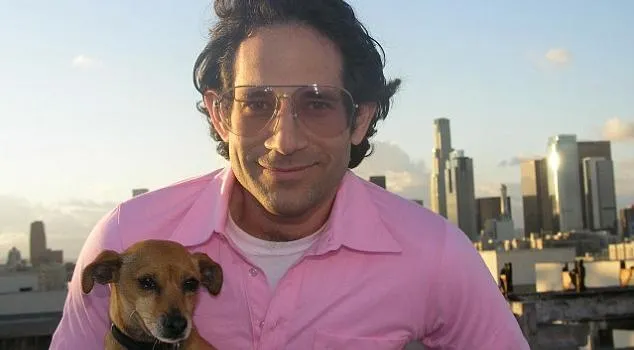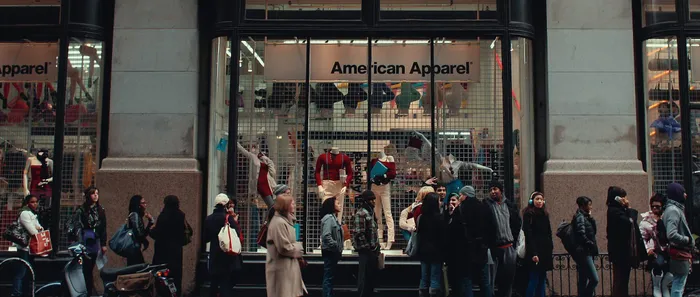Dov Charney's American Apparel: a 'Trainwreck' of cult fashion and its hidden costs

American Apparel founder and CEO Dov Charney.
Image: X/@Complex
Netflix’s "Trainwreck" docuseries has me in a chokehold, okay? From cruise ships turned floating toilets to festivals that never were, this series is my kind of chaotic binge.
But the recent release of "Trainwreck: The Cult of American Apparel" really got me spiralling.
It’s giving fashion fever, cult realness and one of the most problematic CEOs to ever sit in an open-plan office. Welcome to the world of Dov Charney - or as I like to call him, the man who turned a T-shirt into a movement and himself into a menace.
American Apparel wasn’t just another clothing brand in the 2000s. It was the brand. Everyone wanted in. It was quirky, it was edgy and it made basics look like runway statements.
The kind of place that, rumour has it, even opened up after hours just for Beyoncé to shop in peace. That’s how hot this label was.
From teen Tumblr girls to A-list celebs, the whole world was romanced by cotton bodycon and neon gym shorts.
But like every cult, there’s a "visionary" behind the madness, and in this case, it was Charney. The man, the myth, the narcissist.
There’s a whole science to spotting cult leaders and he ticked all the boxes: manipulative charm, God complex, blurred boundaries, obsession with loyalty and of course, building an identity-driven brand that made people feel “chosen”.
One former employee said working there was like being pulled in by a “light”.
Yeah… red flag much?
He wanted to break down fashion norms, and, at first, he did. He pushed boundaries, hired people based on their “weirdo club” vibe and didn’t shy away from provocative ads. Actually, let me rephrase, he didn’t shy away from straight-up soft porn.
Think open-legged poses, oiled-up bodies and barely-there clothing sold as “expression”. I’m sorry but since when did fashion mean flashing your bits on a billboard?
And it worked for a while. American Apparel blew up. The mid-2000s were a perfect time: Facebook was booming, hipsters ruled the streets and being “edgy” sold like soet koek (sweet cake).
But behind the porno posters and sexy slogans, the company was starting to rot from within.

The documentary tracks the rise and fall of American Apparel and its CEO from the company’s inception.
Image: X/@NewOnNetflixUK
The work environment, surprise surprise, was a disaster. Staff were either living with Charney or desperately trying to avoid him. He ran the place like a cult compound. Sexual tension and actual misconduct were woven into the company culture.
He slept with employees, labelled staff “fools of the week” if stores didn’t perform and had a toxic habit of pitting workers against each other. Classic “I’m not abusing you, I’m helping you grow” energy.
Eventually, the stories could no longer be ignored. By the 2010s, American Apparel was collapsing under the weight of Charney’s scandals, from mistreatment of staff and exploitation of undocumented workers to multiple allegations of sexual assault.
Women came forward, brave enough to tell their stories in the documentary. You’d think that would be the end, right? Wrong.
Like most of these toxic fashion tales (yes, I’m referring to Balenciaga), the consequences were … underwhelming.
Remember the child exploitation scandal? Disturbing reports, and global outrage, and yet the brand is still thriving.
Celebs are still wearing it like nothing ever happened. The bar is so low it’s underground.
And Charney didn’t vanish into obscurity. Nope. He’s back on the scene launching Los Angeles Apparel and helping out on Yeezy, Ye’s (Kanye West) brand. Oh, and he proudly printed the “White Lives Matter” T-shirts. So subtle.
As for American Apparel, it was eventually bought out by a Canadian company and relaunched just before the pandemic. A quieter reboot for a brand once fuelled by controversy and cultish devotion.
This documentary is a much-needed exposé on how fast fashion - literally and figuratively - can swallow people whole.
"Trainwreck: The Cult of American Apparel" is a reminder that sometimes, looking cool and being part of a "woke" movement comes at a nasty price.
Related Topics: